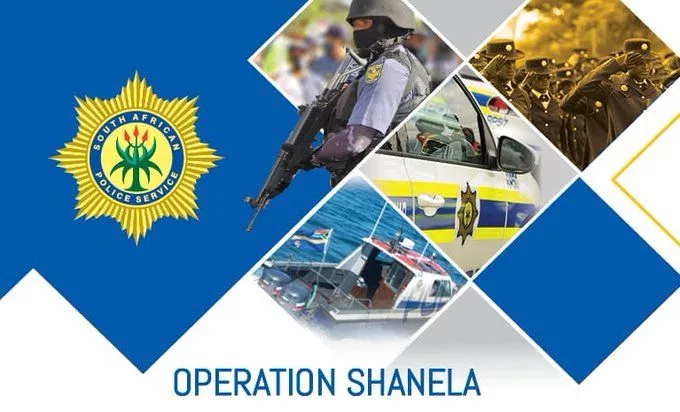Gasant Abarder, a South African journalist, fearlessly addresses racial disparities in sports despite facing racial abuse. He stands his ground and uses his pen to combat hostility. Abarder’s commitment to his profession and his relentless pursuit of racial bias in sports is commendable and serves as an example to future generations. His experiences emphasize the need to confront racial bias and increase representation in sports, leading the way towards a more inclusive society.
Meet Gasant Abarder, a South African journalist who fearlessly confronts racial disparities in sports. Despite facing racially abusive backlash, Abarder continues to stand his ground, using his pen to combat hostility. His unwavering commitment to his profession and his relentless pursuit of racial bias in sports is commendable.
An Unwavering Stance
Gasant Abarder, an esteemed South African journalist, remains unfazed in the face of adversity. His recent criticism of the limited involvement of black African athletes in the T20 squad that suffered defeat in the World Cup finale attracted racially prejudiced retaliation. Undeterred by the onslaught of abuse, Abarder stood his ground, using his pen to combat the hostility. His roots in the tough neighborhood of Woodstock have forged a resilience in him that is admirable.
Abarder’s critique of Cricket South Africa’s (CSA) selection criteria for the T20 World Cup squad was more than just a cursory observation. He expressed his disappointment about the exclusion of black African players, a lapse he believed to be a glaring oversight by CSA. Despite his initial doubts, he found his skepticism melting away as the tournament unfolded.
Unwanted Attention and Steadfast Resolve
However, it wasn’t only the event’s progression that intrigued Abarder. His critical observations stirred up some strong reactions among readers. The backlash took a personal turn, with derogatory comments directed not only towards his professional analysis but also towards his personal life and religious beliefs.
There was no denying the racial bias that permeated the entire conversation. However, Abarder, with over three decades of experience in the media industry, remained resolute. His extensive career in journalism proved the old adage true: you don’t want to make an enemy of someone with access to barrels of ink and an enormous readership.
In this instance, the ink took the form of a digital medium – Cape {town} Etc, with a substantial readership of hundreds of thousands. Abarder’s dedication to his profession and his crusade against racial bias in sports was palpable. He continued to put forth his viewpoints and observations, never hesitating, even amidst ensuing controversy.
Persistent Struggle Against Racism
Following his contentious column, Abarder found himself on the receiving end of unwanted emails filled with racial slurs and offensive comments. The individuals behind such unsavory behavior were undoubtedly spurred on by the underrepresentation of black African players in the squad previously mentioned.
Although the racist comments were uncalled for, they underscored a deeper problem within the South African society and its sports community. The lack of representation, as highlighted by Abarder, led to an undue sense of entitlement among individuals like those who targeted him.
Abarder’s unwavering commitment to his profession and his relentless pursuit to challenge racial bias in sports is commendable. His experiences, although disturbing and unfair, underline the necessity to confront racial bias and increase representation in sports.
The Path to an Inclusive Society
In a time when discussions about fairness and representation are critically important, Abarder’s insights and experiences serve as a beacon guiding the way towards a more inclusive society. His defiance and perseverance in face of unmerited attacks are a testament to his tenacity and dedication to his profession. With the same tenacity and dedication, he boldly wields his pen, unafraid of the challenge, committed to fighting for representation in sports.
Through all this, Abarder emphasizes a vital point. The comments and insults hurled his way reflect more on the individuals who voiced them than on him. They expose the deeply ingrained racism and intolerance that is sadly prevalent in our society. Despite this, Abarder’s determination remains unbroken. He tirelessly advocates for equitable representation and equality in sports, setting a precedent for future generations. His words, his resilience, and his strength remind us that the power of the pen is indeed mightier than the sword.
Who is Gasant Abarder?
Gasant Abarder is a South African journalist who fearlessly confronts racial disparities in sports. He has over three decades of experience in the media industry and is known for his unwavering commitment to his profession and his relentless pursuit of racial bias in sports.
What did Abarder criticize?
Abarder criticized the limited involvement of black African athletes in the T20 squad that suffered defeat in the World Cup finale. He expressed his disappointment about the exclusion of black African players, a lapse he believed to be a glaring oversight by Cricket South Africa’s (CSA) selection criteria for the T20 World Cup squad.
How did people react to Abarder’s criticism?
Abarder’s critical observations stirred up some strong reactions among readers. The backlash took a personal turn, with derogatory comments directed not only towards his professional analysis but also towards his personal life and religious beliefs. He received unwanted emails filled with racial slurs and offensive comments.
What does Abarder’s experiences underscore?
Abarder’s experiences underscore the need to confront racial bias and increase representation in sports. The lack of representation, as highlighted by Abarder, led to an undue sense of entitlement among individuals who targeted him.
What does Abarder’s experiences teach us?
Abarder’s insights and experiences serve as a beacon guiding the way towards a more inclusive society. His defiance and perseverance in the face of unmerited attacks are a testament to his tenacity and dedication to his profession. He tirelessly advocates for equitable representation and equality in sports, setting a precedent for future generations.
What is the power of the pen?
Abarder’s words, resilience, and strength remind us that the power of the pen is indeed mightier than the sword. He boldly wields his pen, unafraid of the challenge, committed to fighting for representation in sports.










